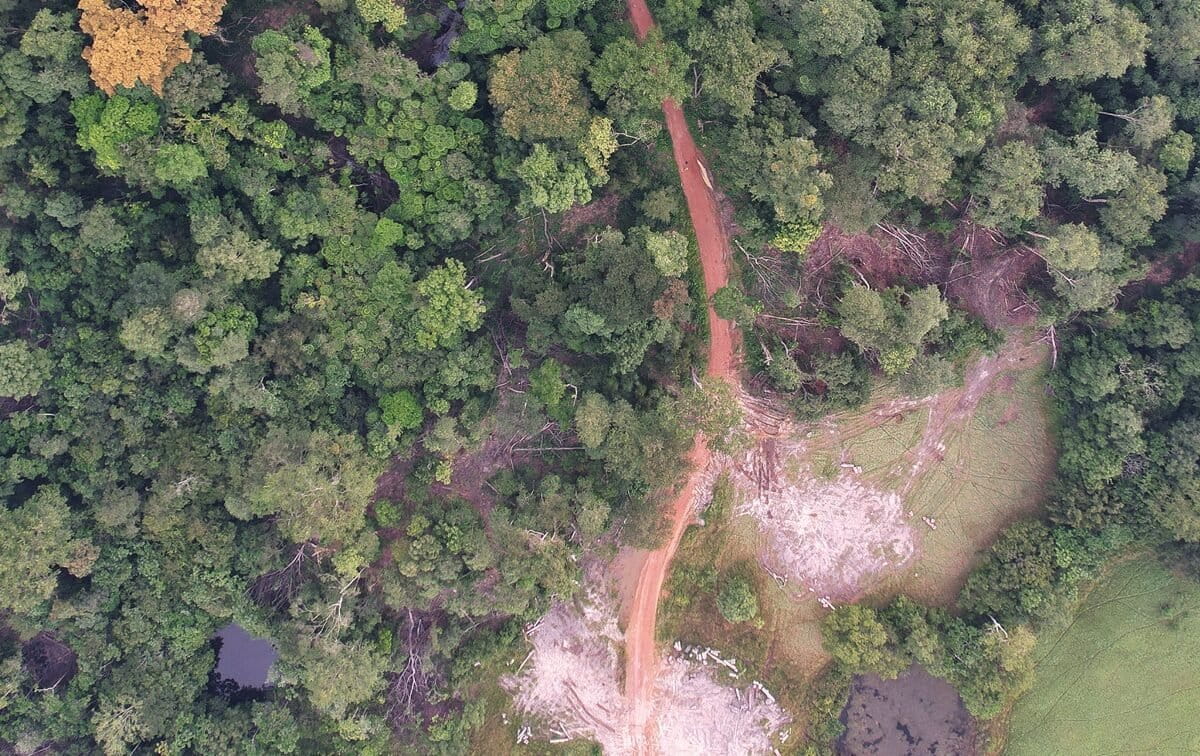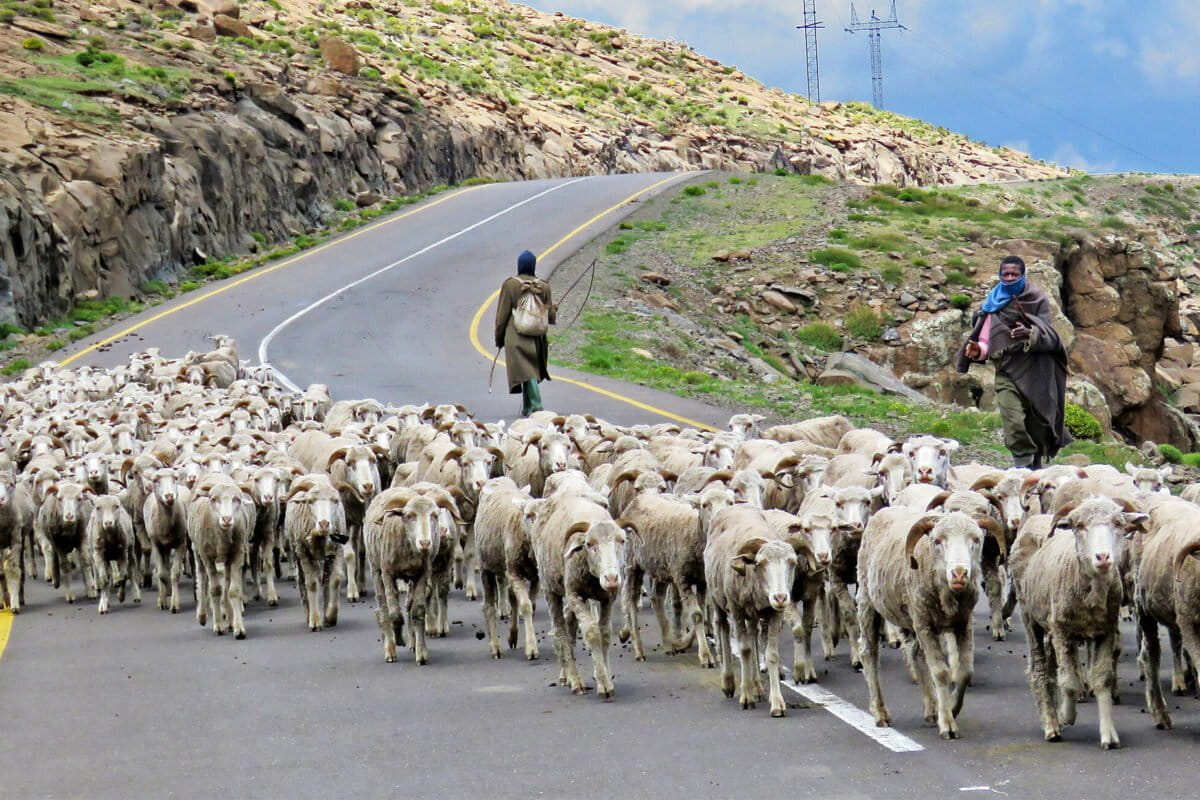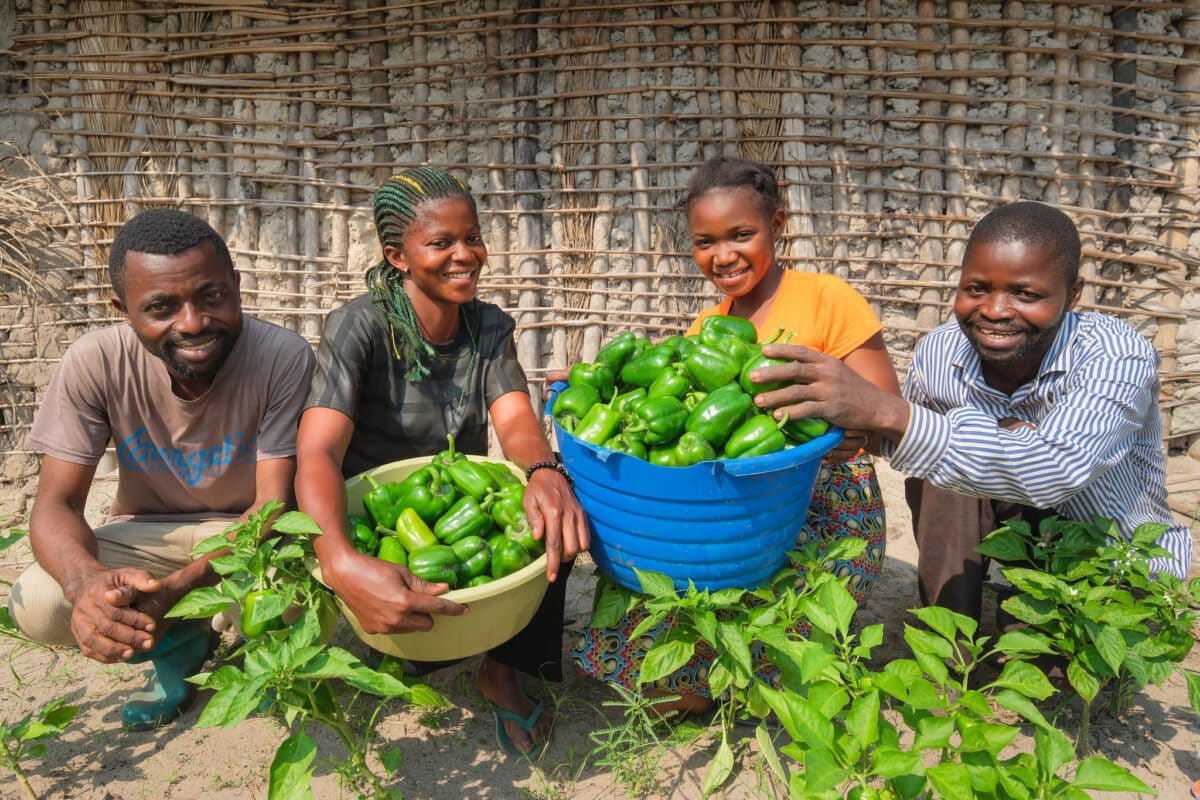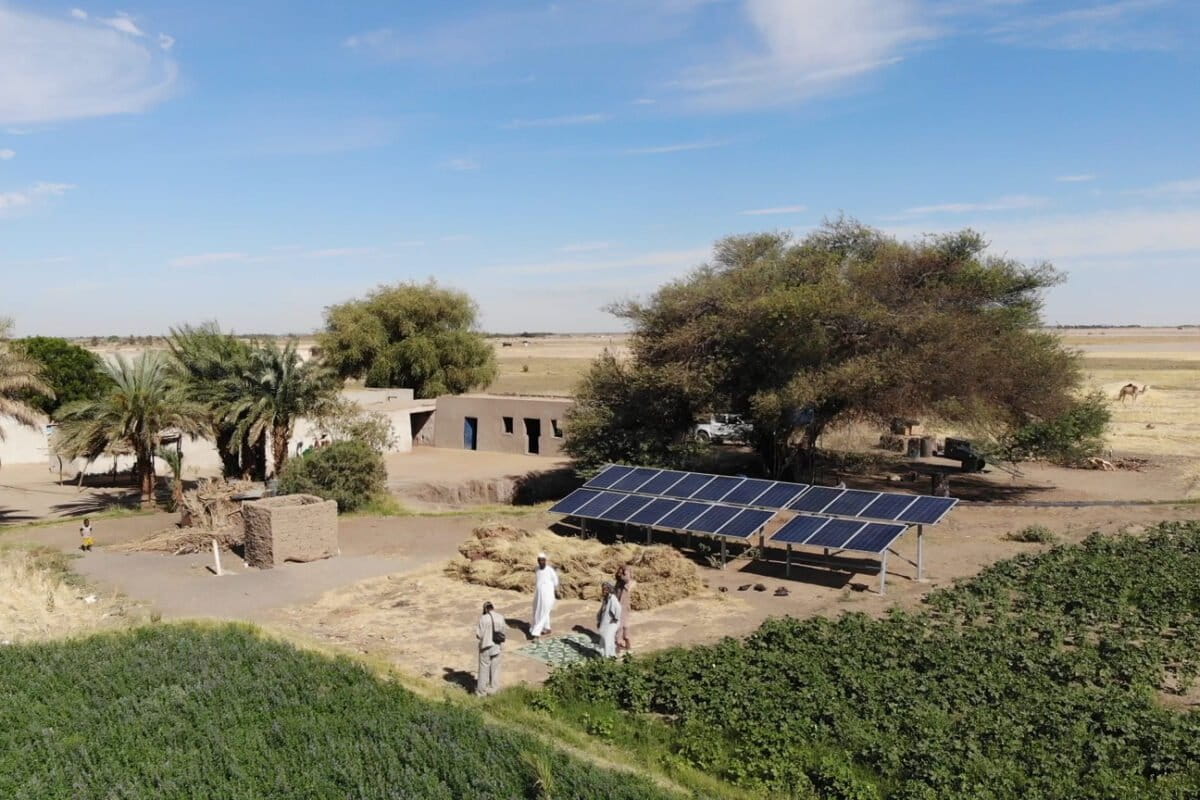- Willie Shubert, Executive Editor and Vice President of Programs at Mongabay, applies a systems-based perspective shaped by his background in geography to lead the organization’s English-language newsroom and global editorial strategy.
- His career began at National Geographic and evolved through the Earth Journalism Network, where he built a worldwide community of environmental reporters and helped launch data-driven platforms such as InfoAmazonia.
- At Mongabay, Shubert has professionalized and specialized the newsroom, fostering trust, independence, and innovation while emphasizing journalism’s power to create transparency and accountability in environmental decision-making.
- Shubert spoke with Mongabay founder and CEO Rhett Ayers Butler in October 2025 about journalism’s role in addressing the planetary emergency and the persistence required to drive meaningful impact.
For Willie Shubert, journalism is a kind of cartography.
“I studied geography,” he says. Mapmaking taught him how to see the world as a system.
That systems view now guides his work as Executive Editor and Vice President of Programs at Mongabay, as he helps steer the environmental news organization through one of the most turbulent moments in the planet’s history.
Shubert oversees Mongabay’s English-language newsroom—its largest—and shapes the organization’s global editorial strategy. His remit spans from deciding which forest to investigate next to building the conceptual scaffolding for Mongabay’s model of impact.
“This work enables Mongabay to scale up the volume and size of grants that fund our journalism,” he explains.

His typical day is an exercise in mental gear-shifting: from assessing security risks for reporters in remote regions to writing grant proposals and refining the workflows that keep a globally distributed newsroom aligned. “My day-to-day life is quite diverse,” he says.
Shubert’s path to Mongabay began at National Geographic, where he worked in the international editions division producing more than 30 language versions of the magazine. It was, he recalls, “a crash course in how to do high-quality journalism with a lot of resources.” His role as the “living English dictionary” for translators taught him precision, and his early experiments launching the magazine’s social media channels showed him how legacy institutions could reach new audiences. But ambition soon outgrew opportunity.
“I realized I was learning secondhand,” he says. “I wasn’t in a position to practice journalism myself. Competition was fierce and I knew I was disposable. That was a tough realization, and all too common for the journalism industry.”
His next chapter, with Internews’s Earth Journalism Network, brought him closer to the field. There, he helped build a global community of environmental reporters—often in the Global South—capable of explaining complex scientific stories in accessible terms. He created data-driven outlets such as InfoAmazonia and established a grants program that helped local journalists tell stories once overlooked by international media. The experience cemented his belief that capacity alone was not enough.
“The best opportunity for a journalist isn’t a workshop or a fellowship,” he says. “It’s a job.” That conviction ultimately drew him to Mongabay, whose model—paying journalists to do independent environmental reporting—matched his vision for durable impact.
Impact, for Shubert, is not measured by pageviews. It is seen in forests still standing. He cites Mongabay’s investigations that helped prevent plantation expansion in Suriname and halted a century-long carbon deal in Malaysian Borneo that would have severed Indigenous communities from their land.
“Those harms were avoided because we created transparency that promoted accountability,” he says. Such victories are often invisible, but they demand vigilance.
“The issues we cover are bigger than a single story,” he adds. “The truth is revealed in thousands of stories that each resonate with people for different reasons.”

Under his leadership, Mongabay has specialized its newsroom: teams dedicated to video, data, and copy editing support a steady flow of multilingual reporting. This transformation, he says, has allowed the organization to “scale up impact” without diluting quality. The newsroom’s independence—free of a corporate parent—encourages innovation. “Nobody’s looking over our shoulder every day,” he says. “Each of us needs to cultivate a sense of purpose.”
That autonomy, he believes, rests on trust. “You have to trust people,” Shubert says simply. “My job is to create the system, but I rely on our journalists’ judgment and intuition. No one can do it alone.”
His motivation comes from the team itself—a “community of like-minded, dedicated people” trying to address the planetary emergency he calls the defining story of his lifetime. Persistence, he insists, is the essential virtue.
“Nothing changes overnight. You have to pursue stories doggedly,” he says, noting they are often “hard to understand” or “purposely obscure because they reveal uncomfortable truths.”
“Understanding why you’re doing what you do is key to maintaining the perseverance that’s central to success.”
For Shubert, journalism’s purpose is not just to reveal problems but to enable understanding. By connecting evidence with empathy, Mongabay’s reporting aims to bridge the gap between local realities and global awareness. Its impact, he says, depends on that exchange: people using credible information to make better decisions for the environment and humanity. It is slow, patient work—one story at a time.

An interview with Willie Shubert
Mongabay: Please introduce yourself and your position at Mongabay.
Willie Shubert: I’m the Executive Editor and VP of Programs at Mongabay. As Executive Editor, I’m responsible for Mongabay’s flagship English publication—our largest team. In this role, I set the editorial agenda, mobilize resources to achieve our goals, review story pitches and drafts, and ensure staff get their work to publication. I’m also the VP of Programs. As a non-profit news outlet, this part of my job is about designing the model for our newsroom and all the key concepts for how we work—from the theory of change describing what objectives independent journalism can achieve to how we monitor our progress and how that translates into impact. This work enables Mongabay to scale up the volume and size of grants that fund our journalism. I was also the lead author of Mongabay’s 2030 strategic plan, which describes what Mongabay’s working to accomplish as an organization. That part of the job is really about creating the conceptual infrastructure all of Mongabay’s constituent parts work within.
Mongabay: What does your day-to-day work at Mongabay look like?
Willie Shubert: A typical day is an exercise in gear shifting. I have to change my frame of reference frequently—researching where Mongabay should put its attention, assessing whether a specific story in a dangerous location is worth pursuing and how we can do it safely, sharing progress updates with staff, writing grant reports and proposals, developing our multitude of websites, determining how much money or resources we have to devote to different subject areas or investigations, and building consensus around Mongabay’s decision making processes, production workflows, and editorial policies. My day-to-day work life is quite diverse.
Mongabay: What did you do before you joined Mongabay?
Willie Shubert: I got my start in journalism working at National Geographic magazine, in the international editions division. My job was to help produce over 30 different language versions of National Geographic. I didn’t speak all those languages, so my role was to be a living English dictionary. If a word or phase wasn’t in Merriam-Webster’s Dictionary, I had to define it so the translator could reproduce the content accurately and carry the voice of the original authors. It was a crash course in how to do high-quality journalism with a lot of resources. I learned a tremendous amount there.

At the time, I was the youngest staffer at the magazine and was one of the first people to launch the magazine’s social channels. National Geographic had so much credibility and I was thrilled to open a legacy publication up to a new audience. It inspired me to think differently about how to reach people that would never read the magazine. One of the reasons I left is that I was learning secondhand; I wasn’t in a position to practice journalism myself. Competition was fierce and I knew I was disposable. That was a tough realization, and all too common for the journalism industry.
My next step was with the Earth Journalism Network (EJN), a global network of environmental reporters mostly in the Global South. My goal was to build a community of reporters outside the U.S. capable of covering complex, science-heavy environmental issues in relatable ways. I developed data-driven news outlets like InfoAmazonia, created EJN’s story grants program, and helped journalists at many outlets publish environmental stories. That foundation—along with the vast network of people I’d worked with and trained—carried over to Mongabay; many of them have since become contributors or staff members.
Mongabay: Why did you decide to get into journalism?
Willie Shubert: It was somewhat of a happy accident. I studied geography, which got me to National Geographic, and gave me a love for mapmaking and cartography. I wanted to understand what life was like across the planet—what it means to be human and how we depend on and adapt to the environment.

When I started university in 2004, the U.S. was at war in the Middle East. I felt I needed to understand and explore that. At Humboldt State (now Cal Poly Humboldt), I was behind the “redwood curtain” and the war felt so distant. My classmates were very focused on environmental issues and I strove to discover connections between the human tragedy of these conflicts and their environmental context. My inspiration to focus on journalism was in recognition that building a community depends on people having a shared reality built on a common set of facts. It’s a prerequisite for bringing together people with different values and viewpoints. Journalism can accomplish that.
Mongabay: Why did you decide to apply for the Mongabay position?
Willie Shubert: After six years with the Earth Journalism Network organizing training and building networks, I realized that the best opportunity for a journalist isn’t a workshop or a fellowship. It’s a job. At EJN, we couldn’t be a publisher no matter how hard I tried; we couldn’t directly give people jobs the way Mongabay does. Mongabay’s clarity of mission and purpose inspired me to join. Even before getting hired, I felt EJN and Mongabay should join forces because our activities and purposes are so well aligned. People do need training opportunities. But what motivates me most at Mongabay is that we provide jobs for people to pursue environmental reporting as a profession that gives them a decent, and hopefully meaningful life.
Mongabay: Why do you care about the issues Mongabay covers?
Willie Shubert: Big picture, this is a critical moment in history. We’re in a planetary emergency. Action to halt deforestation and biodiversity loss, to avert the worst outcomes from climate change, to address pollution and its impacts on human health—the environment touches everything from economics to politics to justice. The planetary emergency is the story of the century, and in my opinion the defining issue of my lifetime.

My interest in wildlife started early. I grew up next to the San Diego Zoo and the world’s amazing biodiversity was brought directly to my neighborhood. But my childhood was in a city and Nature was always “outside.” It was the place I went to on backpacking and camping trips with my dad. When I got to Cal Poly Humboldt, I lived in the forest and that dissolved the separation for me. You can climb a tree and see the forest stretch beyond the horizon. The landscape is not defined by humanity. There was no fence or locked door in my way. You have to respond to what Nature gives you. It gave me a tremendous feeling of freedom and grounded me in reality. Being in Nature reconnects me with the truth of what it means to be alive. That’s why I have reverence for Nature and why I care about the issues Mongabay covers. I’m not living a rural life now, but I’m connected to Nature, like we all are, through daily choices that contribute to both the problems and the solutions. I find that motivating rather than discouraging.
Mongabay: What do you most enjoy about your work at Mongabay?
Willie Shubert: What’s special about Mongabay is that we’re an independent media outlet—not part of some big parent organization. That gives us the flexibility to come up with novel ideas and see them to fruition. I am a systems thinker and I enjoy being able to develop structures that support people to achieve their goals.
We’re a globally distributed newsroom and that fosters an independent spirit at Mongabay. Nobody’s looking over our shoulder every day and each of us needs to cultivate a sense of purpose. So what brings us together is asking for help and offering help to each other. I find that tremendously rewarding. An idea alone isn’t that valuable; putting it into practice is what Mongabay enables.
Mongabay: What motivates you?
What motivates me is my colleagues—building a team of like-minded, dedicated people around the world. We need a community to solve our most pressing environmental challenges. That applies internally with our staff and externally with our audience. To me, this is Mongabay’s community and we contribute to impact when our community uses Mongabay to inform their actions.
Mongabay: How do you think about impact?
Willie Shubert: Some of Mongabay’s largest impacts to date are about conserving forests and avoiding harm. You often can’t see a change when you helped stop something from happening, like half a million hectares of forest in Suriname that would have been converted to plantation agriculture, or the 100-year carbon deal in Malaysian Borneo that would have isolated communities from their forests mostly to benefit people who don’t live there. Those harms were avoided because we created transparency that promoted accountability. But those impacts are not permanent.

That’s why Mongabay’s approach—being a daily publisher of news in many languages—to impact recognizes the need for vigilance. The issues we cover are always bigger than a single story. Biodiversity loss isn’t about one species; climate change isn’t just about melting glaciers. The truth is revealed in thousands of stories that each resonate with people for different reasons. That’s why Mongabay’s approach to generating impact is based on mobilizing a global network of communicators because when we amplify local voices exposing their first-hand reality to people around the world, consequential decisions can be better informed, leading to better outcomes for the environment and humanity.
Mongabay: What are you most proud of when it comes to your work?
Willie Shubert: My original mandate in joining Mongabay was to introduce specialization to the newsroom. So, if Mongabay wants to produce videos, we need to create a video team that’s specialized in that. Or if we need to achieve a higher level of quality and verification, we build out a copy editing workflow and a team of editors and coordinators that support production.

This transformation is what I’m most proud of because I crafted a support structure that enables independent individuals at Mongabay to accomplish their goals and contribute to a bigger mission. Bringing specialization to the newsroom has been central to our ability to scale up impact. Organizational change is also incremental. It takes perseverance, dedication, vision, communication, consultation, and negotiation to create a newsroom capable of achieving what Mongabay aims to do.
Mongabay: Is there a particular story or project Mongabay has produced that you’re especially proud of?
Willie Shubert: The projects I find most inspiring and innovative are those using satellite imagery and remote sensing. We often report on rural, remote places our audience doesn’t know directly. Bringing in evidence and context helps people understand the value of intact landscapes—habitats for so many creatures. As a geographer, holding a place-based perspective is central to how I understand the world. Our near-real-time deforestation monitoring stories have transformed how the media tells stories about deforestation.
Before Mongabay, the typical news about deforestation was that we lost a country-sized area of forest last year. Now we’re explaining the classic who, what, when, where, why, and how of a smaller-scale deforestation event. When there’s a house fire in my neighborhood, it gets covered on local news. But when there’s a clear-cut in parkland, it’s rarely on the news. That’s an information gap we’re trying to address and we’ve pioneered these kinds of stories using satellite imagery. So when that park on the other side of the mountain range just got fragmented, we treat it as newsworthy and hopefully raise awareness before the forest loss is irreversible.

We’ve also done enterprise investigative reporting with these tools to increase transparency and generate accountability—showing, for example, a new logging road, an expansion at the edge of a plantation, or an invasion of an Indigenous territory by cattle ranchers. We can show evidence in a way that’s both compelling and safe.
Mongabay: What is a lesson you’ve learned since joining Mongabay?
Willie Shubert: The value of persistence. That’s the biggest lesson for me.
Mongabay: You’ve become a prominent leader at Mongabay. Do you have any reflections on leadership?
Willie Shubert: Another point that could also fit under leadership is that you have to trust people. Mongabay can only exist because we trust each other and we’re pushing in a similar direction. A big part of that is giving people the freedom to pursue what they want to do. My job is to create the system and structure we operate in, but the journalists I hire and support—I have to trust their judgment, intuition, and prioritization. I have a big job; Mongabay is trying to accomplish big things and no one can do it alone. Trust is fundamental. You also have to have something culturally that brings you together. For me, being willing to ask for help and having the space to offer it is key.
Mongabay: Is there any advice you’d give to someone who wants to work in this space?
Willie Shubert: I’d say persistence is one of the key ingredients. Nothing changes overnight. You have to pursue stories doggedly. Often they’re hard to understand because they involve jargon or complex science—or they’re purposely obscure because they reveal uncomfortable truths. You need persistence to be successful.
You have to be persistent—but to what end? Knowing what you want to accomplish is vital to maintaining both momentum and confidence. This line of work will test you. You will fail. Your story won’t work. Nobody will pay attention. Sometimes you won’t get the job. This is not a lucrative career. You have to be realistic about the obstacles; they’re very real. This is a challenging line of work and it’s not for people-pleasers. You will create uncomfortable moments.

Understanding why you’re doing what you do is key to maintaining the perseverance that’s central to success. For me, it was wanting to build the best environmental news outlet in the world. What makes it the best is reporting what others do not, in a way that includes underrepresented voices—both the sources in our stories and the people authoring them. That’s a hard challenge, but that’s what makes you the best, the most credible, and able to present truth, however elusive that may be.
Mongabay: What do you like to do in your free time, if you have any?
Willie Shubert: It’s great for me that I’m very passionate about my job, because it’s the majority of what I do. Mongabay is a 24-hour operation. The sun rises in Indonesia and sets in California, and there’s always somebody working. As we say at Mongabay, we try to live by the mantra “follow the sun.” Nobody’s working 24 hours a day, but it’s a global relay.
It’s hard to call feeding yourself a hobby, but I come from a family in the food business—that was going to be my destiny before I chose journalism, or before journalism chose me. I was planning to be a chef because I find food to be both nourishing and a connection to nature. I’m a salad evangelist. I believe in the universal truth of salad—that all things can be a salad; it’s how I do my flavor alchemy. I cook a lot for my friends and family.
I also go out into nature, of course. As I mentioned before, it’s a reset—a return to base reality, not virtual reality. Being in nature is something I always seek out in my free time.

The last hobby is practicing languages. The languages we speak inform how we see the world. The best way to communicate with people is to communicate on their level; you have to adjust how you speak to who you’re speaking with. The best way to understand someone’s worldview and culture is to learn about their language.
One of the stories I did get published at National Geographic was about the different terms of endearment people have around the world. In French, for example, they call you “little cabbage.” One that always stuck with me is in Farsi, where people are called “the liver” because it’s close to the heart. You can understand the world by traveling, but you understand the people of the world by learning how they speak and express themselves.














